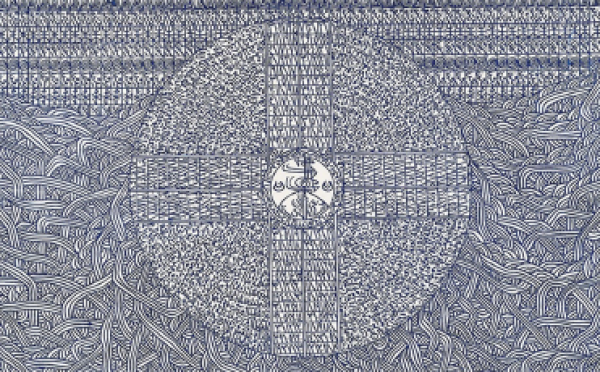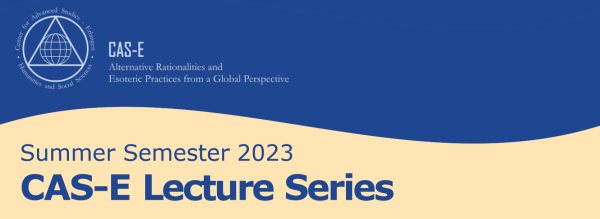|
If the newsletter does not display properly, please click here. |

|
|
|
|
|
Dear friends and colleagues, Today's Wednesday Weekly again brings you Calls for Applications, this time for two PhD positions at Leipzig University. Furthermore we have recommendations for a hybrid conference and a lecture series for you. And, we would like to draw your attention to a Call for Papers. As event for the weekend, we recommend a visit of the European Days of Arts and Crafts. Enjoy and have a good week! Anja & Lucy |
|

|
|
Job Opportunities: 2 PhD Positions in History of Religion in Africa // Religion in Turkey/Alevi Studies at Leipzig UniversityThis week, we would like to share two job opportunities at Leipzig University with you: At the Faculty of History, Arts and Regional Studies, Institute for the Study of Religions, the Junior Professorship in the History of Religion has a vacancy for a doctoral position starting 1 June. The position addresses candidates who will do research on historical dimensions of religion in Africa, ideally with a focus on indigenous religions. Knowledge of postcolonial theories of religion is also desired.
|
|
|
At the same Faculty, the Chair of Modern Turkish Studies, held by our Associate Member Markus Dreßler, is seeking to fill a doctoral position beginning 1 July, with a focus on candidates with a PhD project on religion in Turkey, preferably with a historical/cultural approach and on a topic of Alevi Studies. Admission to the Leipzig Graduate School Global and Area Studies is possible.
|
|

|
|
Conference on “Art, Aesthetics and Islamic Mysticism: Contemporary Perspectives”, 30–31 March, Stuttgart and OnlineDuring the 20th and 21st centuries, Islamic mysticism, or Sufism, spread extensively throughout Western society, with Sufi teachings permeating all spheres of society. The increasingly powerful and pervasive presence of Sufi popular religiosity and aesthetic traditions in the West has also engendered new cultural forms. Contemporary art has not only vastly extended the traditional boundaries of aesthetic material culture; it is also drawing upon a far more variegated range of bodily and sensory experiences. Traditionally, Sufis have often been the guardians of the arts within Islamic societies, whether it be music, poetry, painting, or calligraphy. Today’s Sufis, whilst still practicing these traditional arts, also express themselves through plastic and visual arts, performing arts, architecture, music (e.g. hip hop/rap music) and other forms of artistic conceptualizations (e.g. photography, theatre performances, multimedia, new media). Drawing on recent methodological tendencies inspired by the ‘aesthetic turn’, this conference will focus on the aesthetic engagement of contemporary artists with Sufi practices, rituals, and discourses in a two-day international interdisciplinary conference. Registration is possible via this website by 29 March.
Academy of the Diocese of Rottenburg-Stuttgart – Conference Centre Stuttgart-Hohenheim, Paracelsusstr. 91, 70599 Stuttgart AND Online
|
|

|
|
Lecture Series of the CAS-E “Alternative Rationalities and Esoteric Practices from a Global Perspective”, April–JulyOur Senior Research Fellow Bernd-Christian Otto points to a lecture series this summer semester, organized by the Center for Advanced Studies Erlangen (CAS-E) “Alternative Rationalities and Esoteric Practices from a Global Perspective”. The opening lecture will focus on “Prognostics for the Fate of the Nation in Traditional China – Some Calendrical Cases” with Wang Fan-sen from the Institute of History and Philology, Academia Sinica in Taiwan, taking place on 18 April.
Friedrich-Alexander-Universität Erlangen-Nürnberg, Hartmannstr. 14, Building D1, Room 000.235, Erlangen AND Online
|
|

|
|
Call for Papers: CISSR Annual Meeting on Christian Origins, 21–23 September, Bertinoro/ItalyWe would like to draw your attention to the Call for Papers for the 9th Annual Meeting of The Italian Centre for Advanced Studies on Religions (CISSR) on Christian Origins, which will take place 21–23 September in Bertinoro/Italy. The Annual Meeting aims to provide a space for scholarly discussion on the history of early Christianity (1st–2nd centuries), including research on the historical Jesus, the interpretation of early Jewish and Christian writings, and the social history of early Christian groups in the broader context of the ancient Mediterranean world. One of the Conference Programme Units deals with “New ‘Secular’ Approaches to Early Christian Research”, chaired by Roberto Alciati, Università degli Studi di Firenze, and Emiliano Urciuoli, Max Weber Centre for Advanced Cultural and Social Studies at University of Erfurt. The principal aim of this unit is to promote cross-disciplinary research characterized by a common agenda: a radical de-metaphysicization of the explanatory narratives of the processes of creation, transmission, blending, memorization, and survival of religious representations, experiences, and practices documented by Jesus followers across the ancient Mediterranean world between the 1st and 4th century AD. It argues that a strategy of consilience among different perspectives is necessary to account for the complex formative dynamics of any large-scale symbolic system, and thus programmatically resorts to ‘secular’ approaches which are too often opposed to each other – like cognitive and evolutionary approaches, historical discourse analysis, post-colonial studies and model-based sociological exegesis. This year’s panel aims to delve into the too-often overlooked relationship between asceticism and monasticism: the first taken as the cross-culturally applicable descriptor of practices, themes, and issues of world- and self-denial, the second understood as a homologous shorthand for the institutionalization and “traditionalization” of ascetic behaviors. The panel welcomes theoretically-informed case studies from textual analysis and archaeology developing new approaches capable of better elucidating this relationship.
Conference Dates: 21–23 September | Bertinoro, Italy
|
|

|
|
Event: 2023 European Days of Arts and Crafts in LeipzigThis weekend, visitors from young to old will have the opportunity to take a discovery tour through the workshops of artisans and creative artists from Leipzig, Northern Saxony and the Leipzig district and experience the unmistakable signature of the regional creative scene. From the noble evening dress to the melodious small organ, filigree home accessories made of ceramics to the elaborately crafted stone sculpture, all this and much more is handicraft.
|
|
|
If you have any content that you think suits the purpose of the weekly, please feel free to send it to us at multiple-secularities@uni-leipzig.de. |
|
|
Kolleg-Forschungsgruppe "Multiple Secularities - Beyond the West, Beyond Modernities" Nikolaistraße 8-10, 04109 Leipzig Mail: multiple-secularities@uni-leipzig.de |